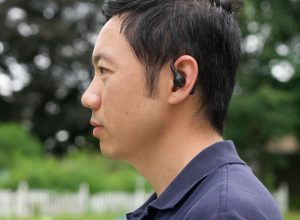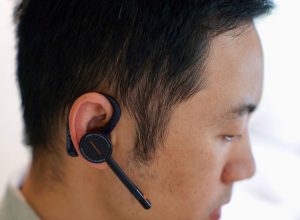While Facebook is great for staying in touch with friends and family, there are better options regarding privacy, especially because of its photo albums, events feature, and tendency to store large amounts of personal data. Your social media is like your digital home base; it’s where people can find out more about you with just a few clicks. Facebook is a great way to stay in touch with friends and family, but it’s also a popular target for hackers.
There are plenty of FACEBOOK SCAMS, and this blog post will discuss nine easy ways to secure your Facebook account and protect your information. Follow these tips, and you can rest assured that your Facebook account is safe and secure!
Set your private account
The most crucial step is to confirm that your Facebook content isn’t accessible to people you don’t trust. You can find the corresponding settings for this in the Privacy tab, which is located in Settings. Here you control the privacy of your posts, who can contact you, and how easily people can find you online. The most secure option is to set all your settings to “Friends” so that only people you know can see your information. You can also set some privacy options to “Only Me” to make them completely private. You also have the option to display selected content only to specific friends. If you’re uncomfortable with new friends, colleagues, or employers scrolling through your old posts and photos, the Limit Past Posts options can be very beneficial.
Protect your account with strong passwords
In 2019, it was discovered that Facebook had carelessly been storing millions of users’ passwords without any encryption. Even though Facebook didn’t find any hacked data, the mistake put millions of users at risk of being hacked on both Facebook an Instagram.
As Facebook’s storage blunder in 2019 shows, it’s crucial to use a strong password to protect your account. While you can’t change how Facebook stores passwords, you can make sure your own passwords are strong and difficult to guess. A password manager is a great way to create and store strong passwords, and it’s much easier than trying to remember multiple complex passwords. By using a password manager, you can rest assured that your Facebook account is safe and secure.
Enable two-factor authentication
Two-factor authentication (also known as 2FA) adds an extra layer of security by requiring a second step for login verification. This could be a code sent to your phone or using the Facebook app as a physical key. Enabling 2FA means that even if someone figures out your password, they still can’t access your account without the additional verification code or physical key. Facebook has more information on setting up two-factor authentication on their website here.
Take control of tagging and photo privacy
When sharing photos on Facebook, it’s important to control who can see them. The Privacy tab is a setting for “Who can see your future posts?” As mentioned earlier, the “limit past posts” function also allows you to control who sees old albums and pictures.
In addition to controlling who can see your photos, you also have control over tagging photos. In Settings, go to Timeline and Tagging and choose your preferred settings for when someone tags you in a post or photo. You can also review all tags of you before they appear on your timeline by selecting “Review posts friends tag you in before they appear on your timeline.” This allows you to control what appears on your profile and ensures that only the content you approve is visible to others.
Be careful about what personal information you share
Regarding your Facebook profile, remember that anyone with internet access can access everything you post and share. This includes not only immediate friends, but also potential employers or even hackers who may try to use your personal information for malicious purposes. Consider the consequences before posting any sensitive information like your address, phone number, birth date, or social security number. Additionally, think twice before sharing vacation plans, as this could alert potential burglars that your home may be vacant during a certain time period.
Be wary of suspicious friend requests
Many hacking attempts happen through fake profiles posing as people you know. Before accepting any friend requests, take a close look at the profile. Is it someone you actually know? Are there any anomalies in their profile or posts that could indicate they are not who they claim to be? If in doubt, reach out to the person through another method (like texting or a phone call) to confirm their identity before accepting the friend request.
Turn off face recognition
Facebook has a feature that uses facial recognition technology to suggest tags for photos. While this may seem helpful, it can also be a privacy concern. One thing that may concern you about Facebook is that it keeps hundreds of photos of your face from different angles.
By storing vulnerable information on Facebook, such as your birthday, name, and where you grew up, you’re at a heightened risk of identity theft and social engineering. The best option would be to delete or lock down this information so only you can access it. If you prefer not to use the feature in Settings, go to Face Recognition and turn off the “Do you want Facebook to be able to recognize you in photos and videos?”.
Remove apps linked to Facebook
When you use your social media profile to log in to an app or play a game, you give third party access to private data. Not only is this dangerous, but it’s also becoming more and more common for data to be leaked from Facebook.
To protect your account from unauthorized access, go to the Apps and Websites tab under Settings and deactivate any connections you no longer want to allow. Scroll down to your Preferences and select whether you want apps and websites to be able to connect with your Facebook account.
Protect your data with a VPN
A virtual private network (VPN) encrypts your internet connection to protect against potential hackers and secure your personal information. Consider turning on a VPN when using public Wi-Fi to prevent others from accessing your data. Additionally, a VPN can help bypass these limitations and allow access to blocked websites if you’re in a country with strict internet censorship laws.
Edit your legacy contact
In the event of your passing, you can assign a trusted individual to manage your Facebook account. In Settings, go to General and select “Manage Account” to edit your legacy contact. This person can write a pinned post on your profile, respond to friend requests, update your profile and cover photos, and download an archive of posts, photos, and profile information. Consider discussing this with your chosen legacy contact beforehand, so they understand and are prepared for their role in managing your account after your passing.
Conclusion
By taking these small steps, you can maintain control over your personal information and protect yourself from potential privacy breaches on Facebook. Always think twice before sharing sensitive information, and stay cautious when accepting friend requests or linking accounts. And remember to use a VPN for added security. Stay safe online!




